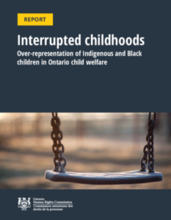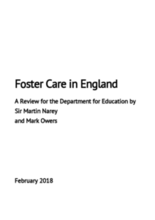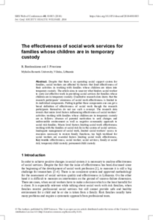Displaying 1321 - 1330 of 2221
This in depth qualitative study of 10 youth who completed the My Life intervention focused on investigating coaching and mentoring elements and processes that youth participants identify as most important to their success, with the intention of informing the further development of youth-directed approaches to supporting young people who are transitioning to adulthood.
On the basis of qualitative interviews with 10 children about their experiences collaborating with child welfare professionals, this study has identified ways in which professionals can facilitate children's participation.
This paper presents a community based participatory research project, which adopted a photovoice approach with seven unaccompanied asylum-seeking children (UASC) living in foster care in the United Kingdom.
The aim of the current study was to examine whether contact with CPS is associated with improved mental health outcomes among adult respondents who reported experiencing child abuse, after adjusting for sociodemographic factors and abuse severity.
The Bucharest Early Intervention Project sought to examine the effects of foster care as an alternative to institutional care for abandoned infants in Romanian institutions.
This report explores the over-representation of Indigenous and Black children in the child welfare system in Ontario.
This review analyzes and critiques the foster care system in England, offering recommendations for improving the system.
This study explored whether the strength of caseworkers' engagement with families in the child-welfare system was associated with the caseworkers' academic degrees, job responsibilities and environments, and/or ethnicity.
The article aims to uncover what hinders social workers to carry out effective work in providing social services for families whose children are in temporary custody.
This study examined two research questions: (1) how do foster care alumni remember their experiences of placement moves in foster care, and (2) how do foster care alumni perceive the consequences of their foster care placement moves on their lives today?



